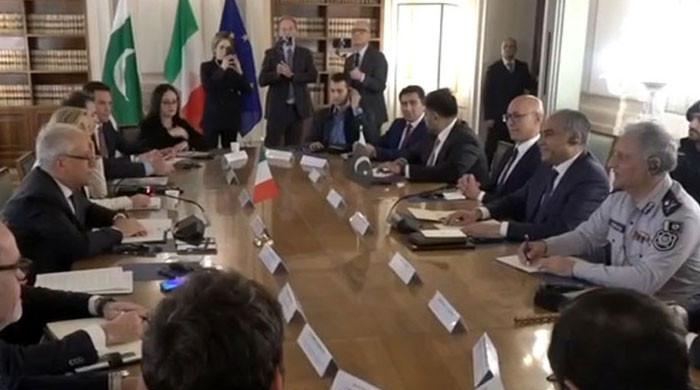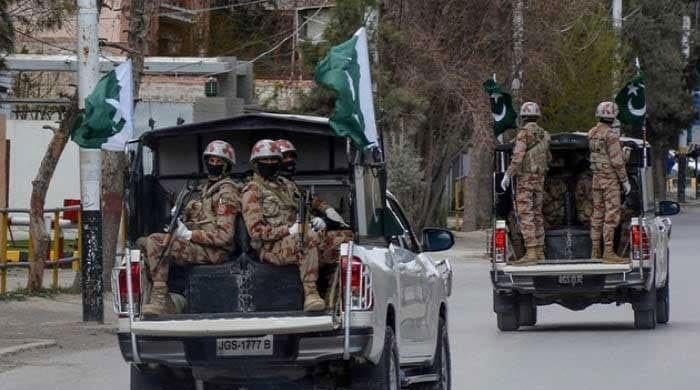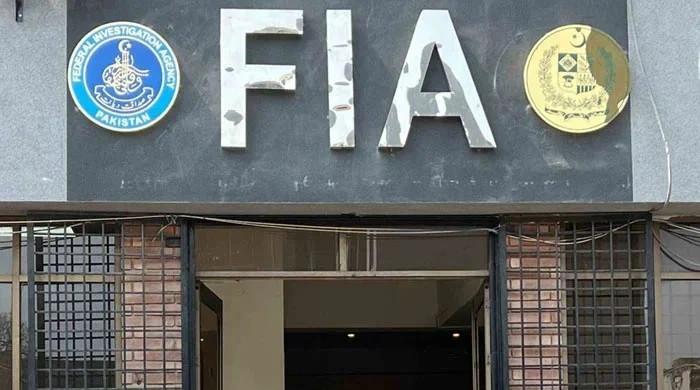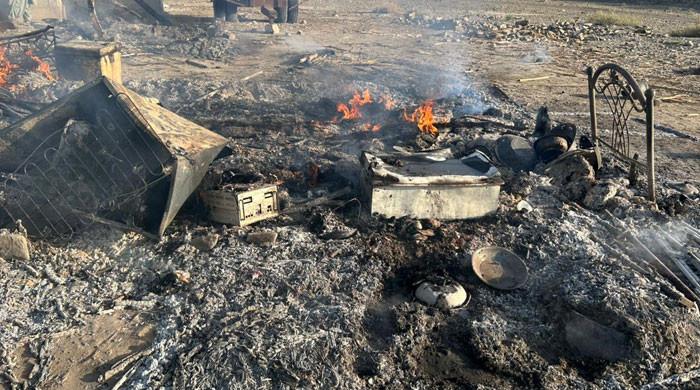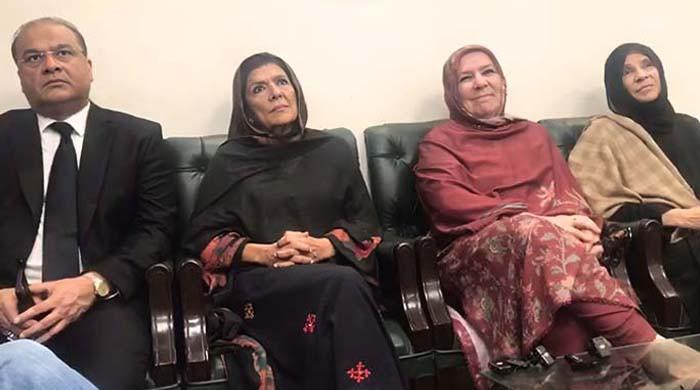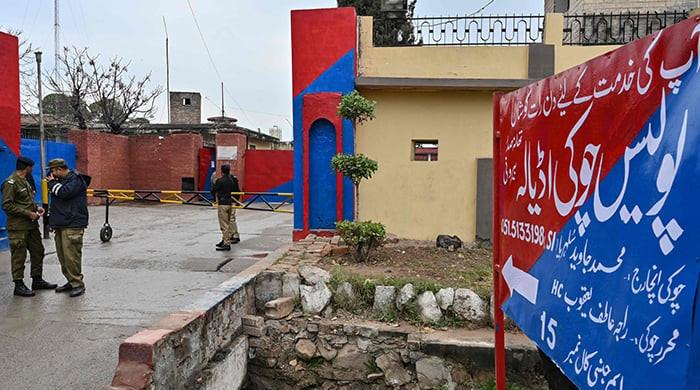Simla Agreement lost its 'sanctity' due to India's unilateral actions: Asif
LoC to become ceasefire line in the absence of bilateral treaty, says defence minister
June 05, 2025
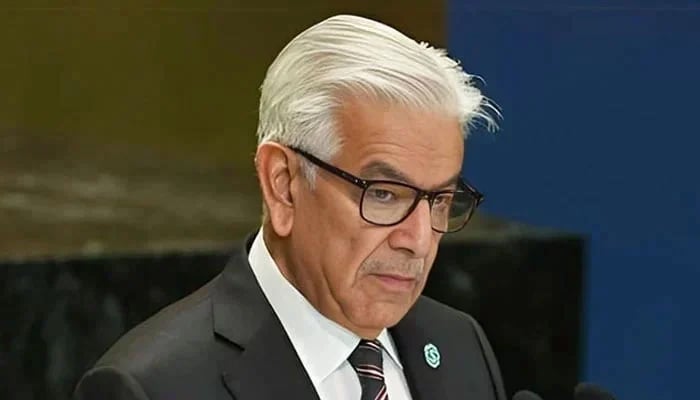
- Agreements to hold no significance if tensions persist: Asif.
- Defence czar says no party could unilaterally terminate IWT.
- "India cannot obstruct flow of water at its own discretion."
Defence Minister Khawaja Asif said on Thursday that the 1972 Simla Agreement between Pakistan and India has lost its "sanctity" due to New Delhi's unilateral actions, including the suspension of the Indus Waters Treaty (IWT).
"The [Simla] agreement was bilateral […] as no third party or the World Bank was involved," Asif told Geo News, maintaining that the Line of Control (LoC) would convert into a ceasefire line in the absence of the bilateral treaty.
The Simla Agreement was signed after the third war between the two countries in 1971 and lays down principles meant to govern bilateral relations, including respect for a ceasefire line in Kashmir.
His statement came after New Delhi's announcement to unilaterally terminate the Indus Waters Treaty (IWT) followed by unprovoked attacks inside Pakistan last month, which led to the military clashes between the two nuclear-armed neighbours.
The last month’s military confrontation between the two countries was triggered by last month’s attack in Indian Illegally Occupied Jammu and Kashmir (IIOJK) that left 26 tourists dead, with India blaming Pakistan for the attack without offering any evidence.
Pakistan's armed forces had launched a large-scale retaliatory military action, named "Operation Bunyan-um-Marsoos", and targeted several Indian military targets across multiple regions.
Pakistan downed its six fighter jets, including three Rafale, and dozens of drones. After at least 87 hours, the war between the two nuclear-armed nations ended on May 10 with a ceasefire agreement brokered by the United States.
In a statement today, the defence czar said that Islamabad had already warned that agreements between both countries would hold no significance or value if tensions persist.
Referring to India's announcement to pull out of the IWT, Asif clarified that a party could not unilaterally terminate the treaty. He also ruled out the possibility that India could obstruct the flow of water at its own discretion.
Islamabad also took a diplomatic initiative in response to New Delhi to present Pakistan's stance and push for peace at the international level following the Pakistan-India conflict.
Prime Minister Shehbaz Sharif tasked former foreign minister and the Pakistan Peoples Party (PPP) Chairman Bilawal Bhutto Zardari with leading the delegation to visit global capitals, as well as the United Nations, to expose Indian propaganda.
The delegation members include federal ministers Dr Musadik Malik, Khurram Dastgir Khan, Senator Sherry Rehman, former minister of state Hina Rabbani Khar, Senator Faisal Sabzwari, former foreign secretary Tehmina Janjua, and former ambassador to the US and EU Jalil Abbas Jilani.




